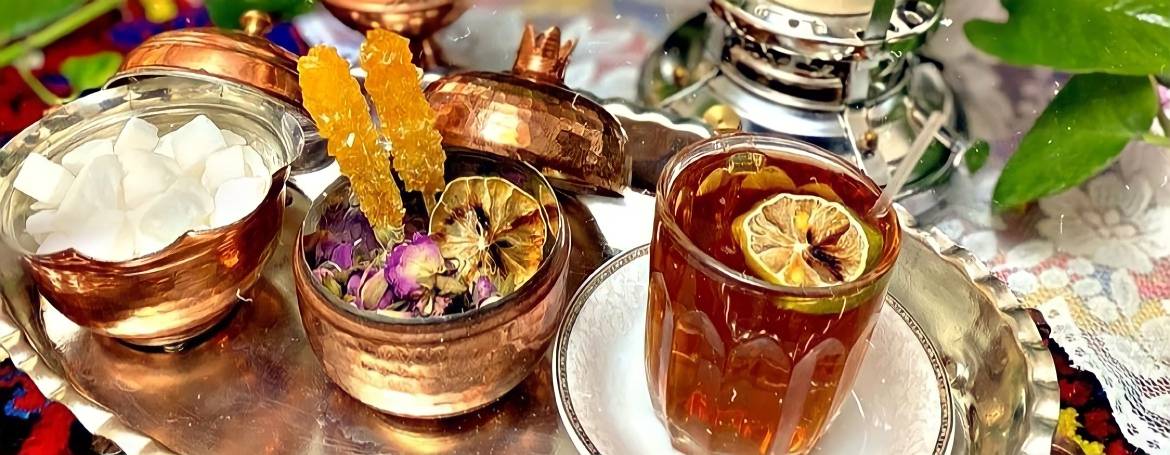HEALTH BENEFITS
Tea is packed with antioxidants and chemicals, such as polyphenols, L-theanine, and catechins that help to fortify the immune system. Of all teas, green and white are the most beneficial because they are made from young leaves full of these chemicals, and are the least processed.
Tea was first used as a medicinal beverage in China to regulate internal body temperature and stimulate the mind. When it reached Europe in the 17th century, it was sold in apothecary shops as a tonic and digestive. It was only in the first part of the 18th century that it was embraced as a social beverage. Tea has since developed into an everyday drink valued for its health-improving properties.
Many scientists have studied that health-giving qualities of tea, but there is still a great deal to discover. While all teas produced from the Camelia sinensis plant are good for health, many studies have looked at the effects of green tea extracts in particular, and most recommend drinking at least three cups of tea per day to gain the health benefits.
TEA AND YOUR BODY
While drinking tea will contribute to overall health and well-being, it is becoming evident that the many unique compounds in tea target specific areas of the body, providing protection from stress and disease, and strengthening the bones and the immune system. From oral health to digestive health, tea is now valued as much for its beneficial attributes as for its delicious flavors.
DENTAL HEALTH
The antimicrobial qualities of tea help to prevent dental cavities and bad breath caused by bacteria, while the fluoride in tea strengthens the teeth. More mature leaves, such as those harvested for oolongs, contain higher levels of fluoride.
SKIN DEEP
The detoxifying effects of the antioxidants found in tea can help to regenerate and repair cells and protect the skin from harmful free radicals (damaged molecules). Despite the caffeine, tea is hydrating since it is mostly water.
CAFFEINE
Tea contains caffeine, a bitter compound that stimulates the nervous system. It is one of the various compounds sent from the roots of the plant to protect and nourish the buds as they grow, and is known to repel insect attack.
There are similar amounts of caffeine in tea per dry leaf weight to coffee. However, the polyphenols (tannins) in tea regulate and slow the release of caffeine, so that the feeling of alertness it gives lasts much longer. Caffeine levels in tea depend on the type of tea used, the water temperature, the steeping time, and the time of year the tea leaves are picked. Green and white teas contain higher levels of antioxidants than black and oolong.
IT’S ALL IN YOUR HEAD
Polyphenols, found in all types of tea, are believed to reduce the risk of degenerative diseases, because they protect the sections of the brain responsible for learning and memory.
STRESS TEST
Tea is a powerful stress buster. Green tea, in particular, contains a unique amino acid, L-theanine, which increases Alpha waves in the brain, relaxes the mind, and, combined with caffeine, promotes alertness.
HEART TO HEART
The polyphenols in tea are a rich source of flavonoid antioxidants and neutralize the toxic and mutating effects of free radicals, helping to prevent cancer. Flavonoids, found in tea, help protect the heart from cardiovascular disease. Drinking green tea may also significantly reduce the risk of high blood pressure.
EASY TO STOMACH
Tea, oolong in particular, has long been used as a post-meal digestive drink. Pu’er is particularly good for digestion because of its probiotic properties, and has been touted as a fat-burning tool. Green tea can help to stimulate metabolism and burn calories.”4
SUMMARY
Tea is known to have many health benefits. It has antioxidants and good chemicals like polyphenols, L-theanine, and catechins that help the immune system. Out of all the teas, green and white teas are most beneficial since they are the least processed, and therefore, have the most chemicals, such as antioxidants, remaining. Since tea was discovered and used as medicine in China, it continues to be embraced for its health-enhancing properties.
There are antimicrobial properties that prevent dental cavities and bad breath and fluoride in the tea that strengthen teeth. The more mature leaves, the higher quantities of fluoride. The antioxidants in tea help in cell regeneration and repair, and skin protection from harmful free radicals. Polyphenols are also found in tea. They are known to protect parts of the brain that are responsible for learning and memory. In addition, they also regulate the slow release of caffeine. Flavonoids in tea help in the health of the heart, particularly preventing cardiovascular disease through blood pressure reduction. There is also a unique amino acid call L-theanine, which initiates mind relaxation through the increase of Alpha waves. Last but not least, there are probiotic properties that aid in fat-burning and metabolism stimulation, especially in green, oolong, and puerh teas.




Add Comment